How to Increase Chances of Successful IVF?
Fertility Treatment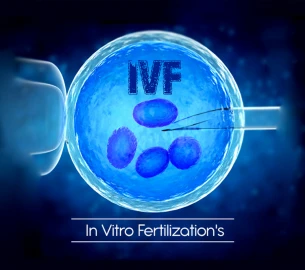
Today, numerous couples wish to have a child, but despite all their efforts, they cannot conceive naturally. Fortunately, fertility treatments have been advanced over the last decades, and infertile couples can become parents by using assisted reproductive technologies (ART) such as IVF or IUI.
In vitro fertilization, commonly called IVF, is a practical ART method through which an egg is fertilized in the laboratory using the male partner's sperm (or donor sperm). Then, the resulting embryo is transferred to the woman's uterus, and hopefully, the pregnancy starts. In this article, we discuss what the IVF success rate and how to increase IVF implantation success.

How to Increase IVF Implantation Success?
There are several factors to be considered to increase your chance of IVF success:
- Do IVF while you are under the age of 35. The younger you are, the higher your chance of getting pregnant through IVF;
- Choose the right fertility center;
- Choose an experienced and well-known fertility specialist;
- Ask your doctor to re-check everything before embryo transfer;
- Take PGS and PGD tests;
- Take folic acid supplements and multivitamins;
- Take necessary blood tests before embryo transfer;
- Avoid coughing and sneezing during the transfer.
The following above factors are explained in detail:
Maternal Age and IVF Success Rate
Younger women have a higher chance of having a successful IVF pregnancy and giving birth to a healthy baby. In other words, younger eggs are usually of better quality and increase the success rate of IVF. Based on the maternal age, the success rate of IVF is:
- 18-13% for women over 40 years old;
- 23-27% for women between the ages of 38 and 40;
- 36-33% for women between the ages of 35 and 37;
- 41-43% for women under 35 years old.
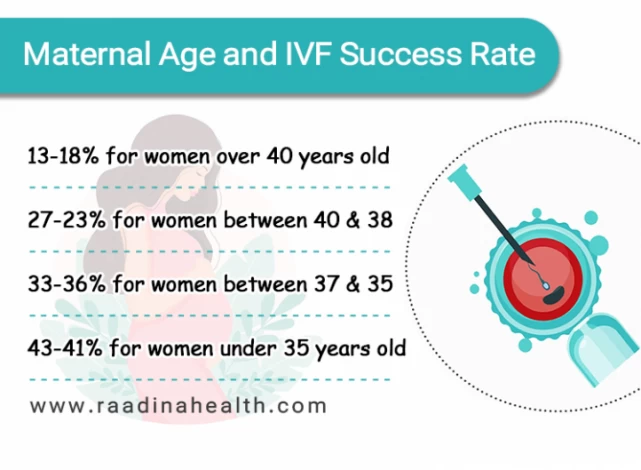
Choose the Right Fertility Center
Fertility clinics differ according to their specialists' skills and experience, laboratory facilities, and embryo freezing centers. Accordingly, in order to improve IVF success, it is essential to choose a well-equipped fertility center.
Some factors should be considered when choosing the right fertility center:
- Clinic's reputation and reviews;
- IVF cost in the clinic;
- The success rate in each embryo transfer;
- IVF pregnancy success rate in couples with similar age and conditions to yours;
- The number of successful multiple pregnancies; and
- How long will the clinic preserve the embryo?
Yazd Reproductive Sciences Institute (YRSI), one of the best fertility centers in Iran, welcomes Iranian and foreign patients seeking fertility treatment. This clinic is considered one of the first in the country where ART methods were developed and practiced.

Improve IVF Success with Choosing an Experienced Fertility Specialist
IVF is expensive and time-consuming; therefore, choosing a skilled fertility specialist is necessary to prevent further expenses. Although IVF and embryo transfer are standard and feasible procedures nowadays, the doctor's experience in these fields will affect the result of the operation and improve IVF success.
Re-check Everything before Transfer Embryo
Speed and accuracy during embryo transfer are essential in increasing the chance of IVF success. Therefore, ask your doctor to check all your tests and procedures once before transferring the embryo so that if you need further treatments, you can do it before the transfer stage. Doing so will transfer the embryo with higher speed and accuracy.
Take PGD and PGS Tests
Since chromosomal and genetic disorders are the leading causes of miscarriage, taking PGS and PGD tests can increase your IVF success rate. We should note that pre-implantation genetic screening (PGS) and pre-implantation genetic diagnosis (PGD) aim to check for chromosomal and genetic disorders. After testing, the embryos with normal genetic characteristics are selected and transferred to the mother's uterus. Taking PGD and PGS eliminates the risk of implantation failure and, as a result, increases the chance of having a healthy child and successful IVF.
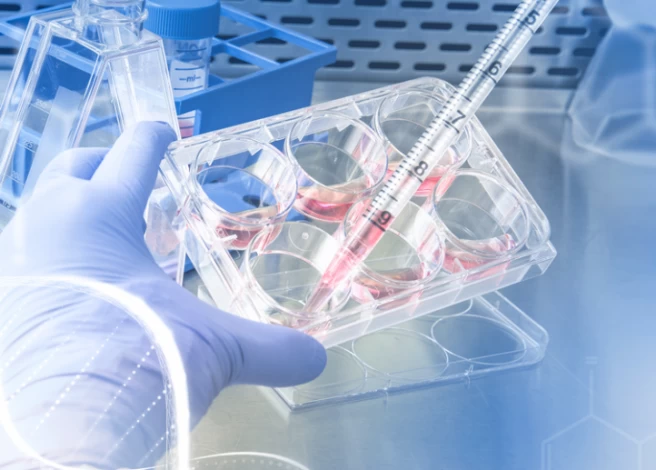
Improve IVF Success with Taking Folic Acid Supplements and Multivitamins
Folic acid supplements and multivitamins should be started three months before embryo transfer. Recent investigations have concluded that taking folic acid by both partners keeps the embryo healthy and increases the possibility of having multiple births. Taking supplements containing folic acid, vitamin D, and B is suggested to improve IVF success. You should consult your doctor about the type and dosage of supplements before taking them.
Some supplements that increase the chance of IVF pregnancy include:
- Vitamin A and B6: for the production of sex hormones in men;
- Vitamin B12: to prevent low sperm count, low sperm motility, and abnormal sperm morphology;
- Vitamin C: to prevent free radical damage;
- Zinc: for sperm production, estrogen reduction, and testosterone metabolism;
- Selenium: to maintain the number of sperms and their standard shape;
- Manganese: to prevent low sperm count, congenital abnormalities, and testicular degeneration;
- Coenzyme Q10: to produce energy, improve blood flow, and increase fertility; and
- Amino acids: for boosting egg and sperm production.
Take the Necessary Tests Before Embryo Transfer
It is recommended to provide a complete medical record before embryo transfer. If your egg and sperm are used for IVF, it is necessary to take hormone and sperm tests and check the fallopian tubes, ovaries, and uterus. Also, if a donor egg and sperm are used in IVF, they should be tested before the start of the IVF procedure. Having your fallopian tubes, ovaries, and uterus checked is crucial before performing IVF with a donor egg/sperm/embryo.
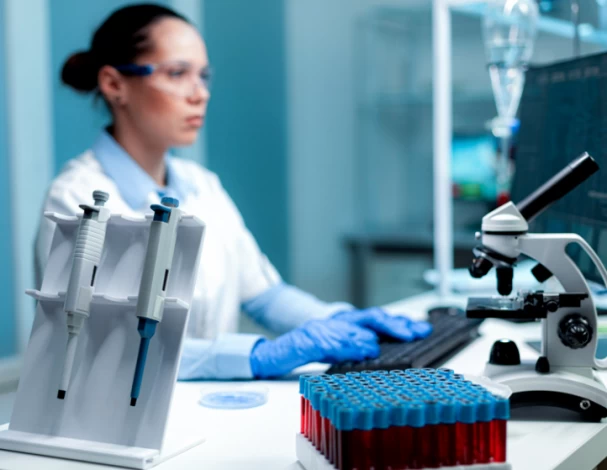
Avoid Coughing and Sneezing
Coughing or sneezing after embryo transfer cannot cause the embryo to move or come out of the uterus, but you shouldn't cough and sneeze when the catheter is in your cervix. So, if you had a severe allergy or cold on the day of the transfer, inform your doctor.
What Is Necessary for a Successful IVF?
A successful IVF highly depends on the physical condition of the couple. For this reason, before starting the IVF procedure, the doctor asks the couple to perform a complete checkup to check the following:
- Preparation of the uterus for implantation;
- Preparation of fallopian tubes;
- Having healthy ovaries;
- Having enough ovarian reserve;
- The proper size of the follicles for IVF;
- Having healthy and motile sperm;
- Having a healthy lifestyle;
- Reducing stress, or at least knowing how to manage it;
- Not taking medications that interfere with fertility drugs.
In the following, each factor mentioned above is explained in detail.

Preparing the Uterus for Implantation
Before starting the IVF process, the doctor examines the uterus by ultrasound, X-ray, or hysteroscopy to identify threatening factors such as fibroids, scar tissue, wounds, and polyps. Each of these factors alone can prevent embryo implantation and lead to miscarriage. Also, before IVF, the doctor tests to ensure that the mother-to-be doesn't have genital diseases such as endometriosis, chronic fallopian tube infection, and disorders interfering with implantation. If the mother has one of these diseases by chance, she should take medications or undergo surgery to resolve her problem.
Preparing the Fallopian Tubes and Not Having Hydrosalpinx
If the fallopian tubes get blocked, they fill with clear fluid and make hydrosalpinx (fluid-filled tubes). Unfortunately, hydrosalpinx reduces the probability of IVF success by 50%; therefore, ensuring that your fallopian tubes are empty of fluid before embryo transfer is recommended.
Having Healthy Ovaries
IVF's success also depends on the quality and quantity of eggs. As a result, your doctor may prescribe you supplements such as coenzyme Q10 (CoQ10), omega-3, and amino acid L-Arginine long before starting the IVF procedure. Moreover, taking multivitamins containing vitamins D and C increases the chances of successful IVF. Of course, taking dietary supplements and IVF medication simultaneously is not advised. You should have finished taking supplements at least three months before taking IVF medications.

Having Enough Ovarian Reserve
The key to successful IVF is enough ovarian reserve. Your IVF specialist probably asks you to take multiple blood tests and perform an ultrasound to estimate the number of eggs in your ovaries. A blood test on the second or third day of your period can determine the amount of follicle-stimulating hormones in your blood. An ultrasound can determine the current number of follicles in your ovaries.
Read the low ovarian reserve article to learn more about the ovarian reserve.
Proper Size of the Follicles for IVF
To increase the chances of IVF success, your follicles should be above 18 mm. When the size of the follicles exceeds 18, the doctor retrieves them at the right time by injecting the HCG hormone. It should be noted that self-injection of this drug is dangerous and should be avoided.
Optimizing Sperm Health
By analyzing the results of a spermogram or semen analysis, the doctor can check the male partner's sperm factors such as motility, count, morphology, etc. Men who have sperm problems should:
- Take vitamins and drugs to increase the quality and quantity of their sperm;
- Stay hydrated by drinking two liters of water each day;
- Keep their testicles cool;
- Maintain a balanced BMI; and
- Avoid cycling and taking a hot bath frequently.

Having a Healthy Lifestyle
Having a healthy lifestyle is one way to increase your chances of IVF success. Before taking any drugs, supplements, or herbal medicines, discuss them with your doctor because some medicines or supplements interfere with the IVF procedure. Also, having enough sleep can have positive effects on IVF success. Studies have shown that women who sleep 7-8 hours daily have a higher chance of successful IVF pregnancy than other women.
Unfortunately, most women stop exercising when the IVF process begins. However, according to many fertility specialists, continuing to exercise - especially in female athletes and people with regular exercise programs – helps maintain BMI normal and increases the chance of IVF success. Of course, patients should avoid heavy sports such as weight lifting and wrestling during the IVF process because they reduce the chances of successful implantation.
Reducing Stress and Anxiety
Stress is one of the most important reasons for IVF failure; therefore, managing your stress and anxiety is better for achieving the desired results. Often, people experience fear and anxiety after IVF embryo transfer. Reading comedy books, watching comedy movies, or creating a happy atmosphere at home can positively affect IVF results.
In order to investigate the effect of happiness and laughter on IVF results, researchers asked the mothers to attend the clown's show after IVF transfer. Surprisingly, the results showed that the chances of pregnancy in people who attended the comedy show after embryo transfer were twice as much as the ones who didn't.
Being patient
In most cases, the first IVF cycle does not lead to pregnancy; sometimes, it takes several cycles to have a successful IVF. Therefore, you should be patient until you get the desired result.

Consulting the Doctor before Taking any Medication
It would be best to stop taking drugs that interfere with your fertility medications during the IVF procedure. In other words, before starting the IVF process and during the first appointments, you should hand your doctor a list of the medications you currently take. Medicines such as acetaminophen, ibuprofen, some OTC supplements, and anti-allergic drugs cause hormonal imbalances and ultimately have a negative effect on IVF results.
Embryo Grading and Success Rates
Embryo grading is a process used in assisted reproductive technology to assess the quality of embryos created through IVF or ICSI. The grading system typically evaluates factors such as the number of cells, cell symmetry, and the presence of fragmentation or abnormalities. This grading helps fertility specialists determine which embryos are most likely to result in a successful pregnancy. Embryos with higher grades (e.g., grades A and B) are typically associated with better chances of implantation and pregnancy. For example, 4AA embryo success rate is around 65%.
Common Beliefs about IVF Success
In the following, we discuss the common beliefs about what increases the chance of successful IVF.
- Absolute Rest after Embryo Transfer
You don't need absolute rest after the IVF transfer. Recent studies show that women who engage in normal daily activities have better results than those with absolute rest. Doctors believe that patients should not have absolute rest after embryo transfer because it prevents the heart and blood circulation system from functioning naturally; however, we should note that heavy activities and sports are prohibited after IVF embryo transfer.
- Acupuncture and Successful IVF
Investigations have shown that acupuncture positively affected some people and not others during the IVF procedure. In general, acupuncture increases blood flow and thus increases the chance of embryo implantation. We should note that acupuncture after IVF embryo transfer has no side effects and gives the mother more positive energy.
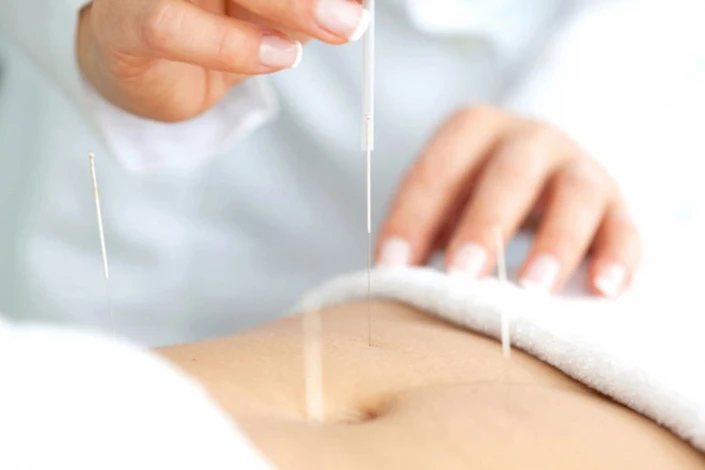
- Herbal Medicines and Successful IVF
So far, it has not been proven whether taking herbal medicines negatively or positively affects IVF success. However, since the amount of mercury in these plants is unknown, it is not recommended to use such drugs during IVF procedures and pregnancy.
Assisted Techniques to Increase Your Chance of IVF Success
When several cycles of IVF have failed, some assisted techniques are used to increase the chance of IVF success. Read on to get more information about how to increase IVF success by using new methods:
- Assisted hatching: This technique is employed if high FSH levels, advanced maternal age, or recurrent implantation failures are the reason for IVF failure. To improve the chances of implantation following transfer, a tiny hole is made in the embryo's outer shell during the assisted hatching process.
- Endometrial scratching: Before taking IVF drugs and on the 21st day of the menstrual cycle, a specialist scratches the surface of the endometrium with a special tool to trigger the body to repair the scratch site. By doing so, growth factors and white blood cells accumulate in the uterus, making the womb lining more receptive. It is worth mentioning that the chemicals released at this stage play a significant role in the implantation and growth of the embryo.
- PRP treatment for endometrium: This is a treatment for thin endometrium, during which platelet-rich plasma (PRP) is separated from the patient's blood and injected into the uterus to increase the thickness of the uterine wall and improve IVF success.
What to Eat for Having Successful IVF?
A healthy diet can highly improve IVF success because it increases the quality and quantity of sex cells and keeps the body in good condition. In addition, a proper diet provides the basis for low-risk pregnancy and the birth of a healthy child. Moreover, maintaining a stable and healthy BMI can effectively achieve the desired result in IVF.
Having fresh fruits and vegetables, dairy products, vegetables high in proteins and vegetable oils, and whole-meal bread (wheat bread) can lead to IVF success. Moreover, avoiding canned foods, unhealthy snacks, fast food, leftovers, processed foods, saturated fat, etc., helps you have a low-risk pregnancy and a healthy child.
The ideal IVF diet can be as follows:
- Eat a Balanced Diet, including a variety of fruit, vegetables, whole grains, lean proteins, and healthy fats in your meals.
- Take Antioxidants such as berries, leafy greens, nuts, and seeds, as they can help protect the eggs and sperm from damage caused by free radicals.
- Choose Healthy Fats like avocados, olive oil, fatty fish (such as salmon and mackerel), and nuts
- Minimize the intake of processed foods, as they are often high in unhealthy fats, sugars, and additives.
- Drink plenty of water throughout the day to maintain proper hydration.
- Reduce or eliminate caffeine and alcohol consumption during IVF treatment, as they can negatively impact fertility.

Having Sex during IVF Procedure
Using healthy and high-quality sperm in IVF plays a crucial role in increasing the success rate of IVF. Therefore, it is recommended that the male partner refrain from ejaculating for at least three days and, at most, seven days before providing the semen sample to the laboratory. Also, after IVF transfer day, it is recommended to avoid having sex until you hear the sound of the baby's heart.
Medications to Avoid during IVF
As mentioned earlier, you should tell your fertility doctor about the regular and certain medications you are currently taking. Allergy medications, OTC sedatives such as acetaminophen and ibuprofen, OTC supplements, and blood thinners, including aspirin, can interfere with your fertility drugs and cause hormonal imbalance. Also, medications used to treat cancer, depression, mental problems, asthma, lupus, thyroid, and seizures should be avoided entirely or replaced by your doctor.
Chemicals to Avoid During IVF
During IVF, you need to be more careful with the chemicals you use, as they can affect the results of your treatment. To improve your IVF success, refrain from using the following chemicals:
- Skin products containing estrogen or progesterone;
- Nail polishes with formaldehyde (colorless and flammable gas);
- Make-up products or soaps with paraben or benzophenone
- Items containing phthalates such as lubricating oils, hair sprays, plastic packaging;
- Stain-resistant materials such as furniture, clothes, cookware, and waterproof mattresses;
- Textiles, mattresses, electronic devices, etc., containing brominated flame retardants; and
- Meat, poultry, and seafood with dioxin.
IVF Aftercare
The IVF post-operative care that increases the chances of its success includes:
- Avoid doing heavy activities and sports until your pregnancy is confirmed;
- Avoid swimming and using the bathtub for 48 hours after IVF transfer day;
- Have a diet rich in fiber to prevent bloating and constipation;
- If you have other children, ask your partner or a caregiver to take care of them for a few days after the transfer; and
- Do not lift, push, or pull heavy objects.
Don't miss the Diet after embryo transfer article if you want to know more about what to eat after IVF embryo transfer.
Pregnancy Test after IVF
When to take a pregnancy test after IVF depends on the hormone injection and implantation time; usually, between 8 and 10 days after ovulation, the implantation process is complete, and the production of the HCG hormone begins. In other words, the HCG hormone, created by the placenta and essential in feeding the embryo, is injected. Then, after 24 hours, a test should be taken to measure the level of HCG.
About 35 hours after the injection of the HCG hormone, the mature eggs are often retrieved, and after fertilizing them in the laboratory, the resulting embryo is transferred to the uterus. Since the HCG hormone remains in the body for 5 to 14 days, you must wait at least 14 days to take a pregnancy test; otherwise, you will face false results.
In general, there are two ways of performing a pregnancy test;
Urine test, which can be taken easily at home. Of course, this method does not provide accurate results for women who have taken fertility medications because the test only reacts to the amount of HCG injected into the body.
A beta test confirms pregnancy by measuring the amount of HCG in the blood. This test is harder and requires more time, but its results are real and accurate.

HCG Level and Pregnancy Status
After IVF, the amount of HCG hormone produced in the body is used to check the pregnancy status:
- The HCG hormone amount under 5 (IU/L) indicates IVF failure.
- The amount of HCG hormone more than 10 (IU/L) means that the test should be repeated after 48 to confirm pregnancy.
- A significant increase in the HCG hormone in the test shows that the doctor must perform sonography after the 4th week of embryo transfer in the fourth week. At this stage, the gestational sac will likely be visible in sonography, and the baby's heartbeat can be heard.
Conclusion
Overall, a number of factors affect the success of IVF, but the mother's age and physical state are the most crucial. IVF has a success rate of 35–40% on average, but you can raise this by taking the previously listed factors into account. As one of the main hubs in fertility treatment, Iran is a desirable destination for infertile couples longing to have a child soon. For more information about IVF in Iran, contact the Radinaa team. Radinaa Co. provides you with the most affordable and customized packages for IVF.
FAQs about How to Increase IVF Success Rate
Is the embryo grade important in IVF success?
Yes. Studies have revealed that using high-grade embryos in IVF results in a more live birth. However, even poor-quality embryos can lead to successful pregnancy if other factors are desirable. In general, the best embryo grades for IVF are 4AA or 5AA.
What should a male partner do to have a successful IVF?
The male partner’s role is as important as the mother’s during the IVF procedure. It would help if you optimized your sperm health by avoiding alcohol and chemicals, wearing boxers, eating well, and exercising. Most importantly, you must be more supportive of your partner during this journey.
Does PGS testing increase the success of IVF?
Yes. Since during the PGS and PGD, the embryos with normal chromosomes are detected and transferred, these tests decrease the risk of miscarriage to a great extent.
Which round of IVF is most successful?
It is almost impossible to determine which round of IVF is the most successful as each body responds differently to fertility medications. Usually, the first round of IVF fails as the uterus rejects the embryo or the embryo stops growing. However, as the IVF cycle is repeated, the uterine receptivity increases, and the embryo can attach to the uterine wall.
How to Make IVF Successful the First Time?
Whether IVF is successful on the first try depends on many factors, such as the embryo quality, the mother’s age, and the parents’ health condition. If you wonder how to increase IVF success on the first try, read the following:
- Workout 30 to 40 minutes a day to lower blood sugar level and control blood pressure;
- Maintain a healthy BMI. Being underweight reduces IVF success as much as being overweight, so you need to be at a balanced weight to improve your IVF success;
- Have a healthy diet rich in omega-3, fatty acids, vitamins, protein, and minerals;
- Quit smoking and avoid drinking alcohol as they affect your reproductive performance;
- Be positive. The mother's anxiety is the main factor affecting the IVF procedure negatively. You can do yoga or meditate to reduce stress and anxiety.
What is a good endometrial thickness for IVF success?
IVF success rates are significantly higher in women with an endometrial thickness >9 to 10. An endometrial thickness below a minimum value of 6 to 8 mm indicates a lower success rate of IVF.
How to make IVF successful a second time?
To improve your success rate for the second IVF treatment, you should make sure that you are physically and emotionally healthy. It is important to be positive and optimistic. It is also helpful to consult with your doctor about how to increase IVF implantation success.






 WhatsApp
WhatsApp
 Telegram
Telegram
 Facebook
Facebook
 Email
Email


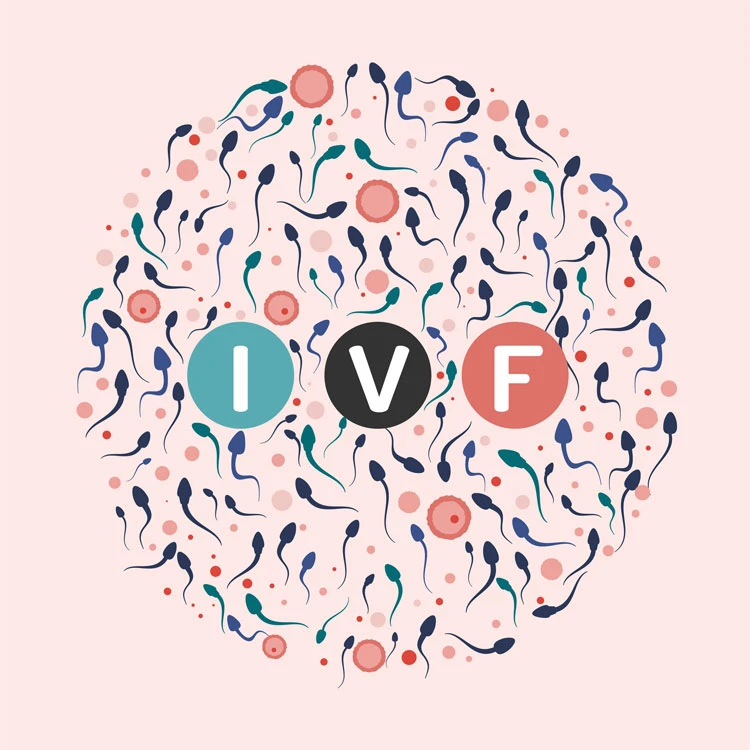
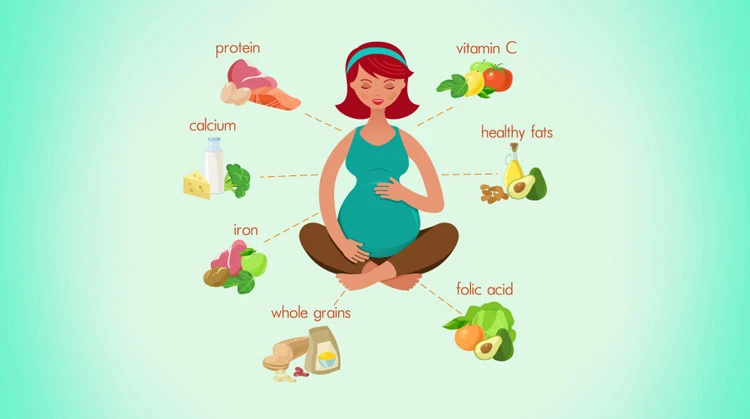


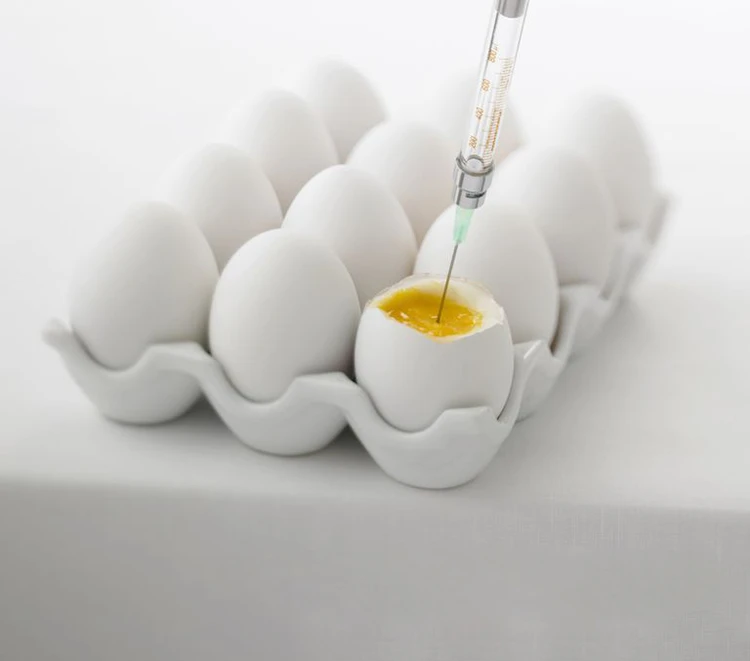
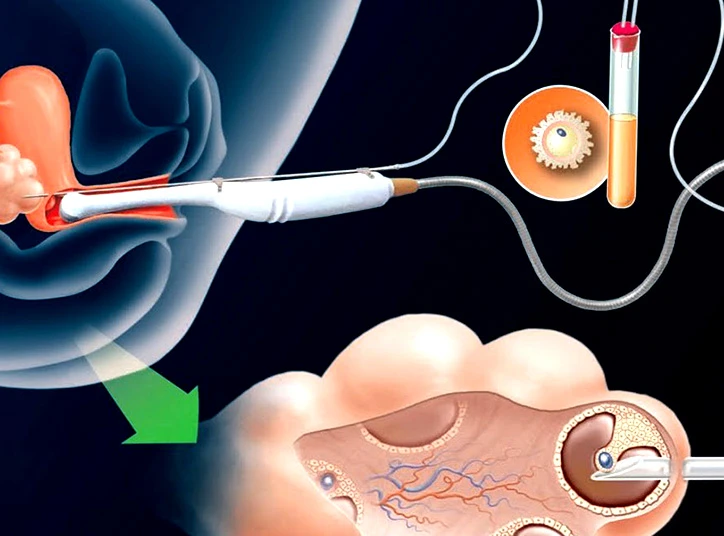

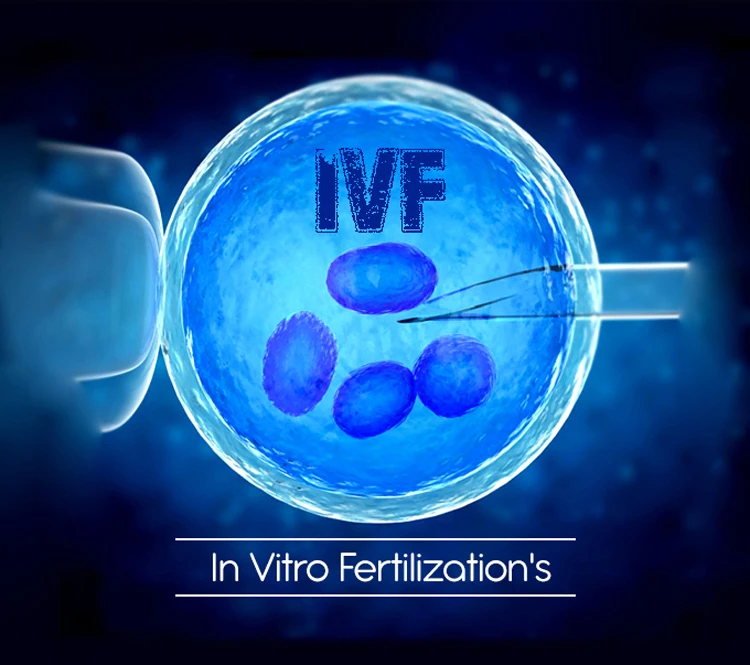

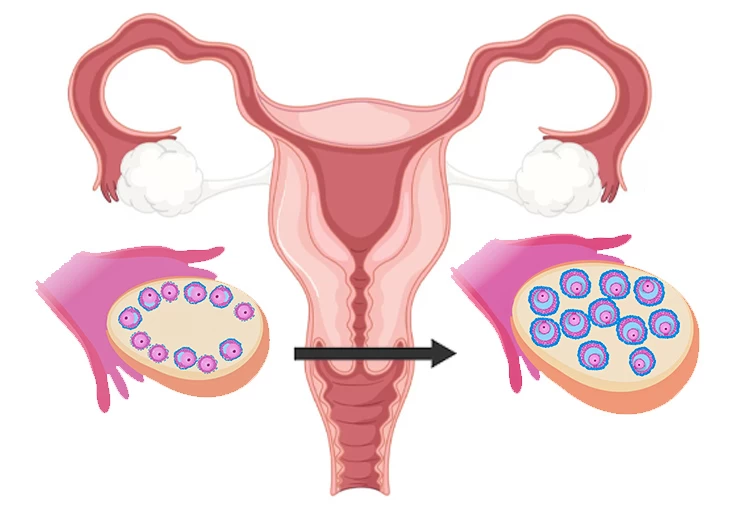


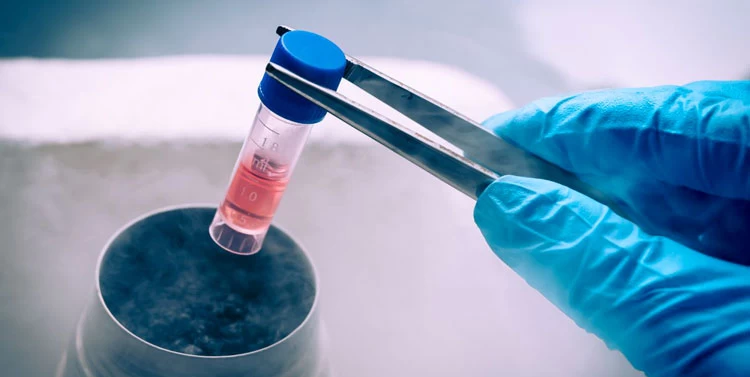

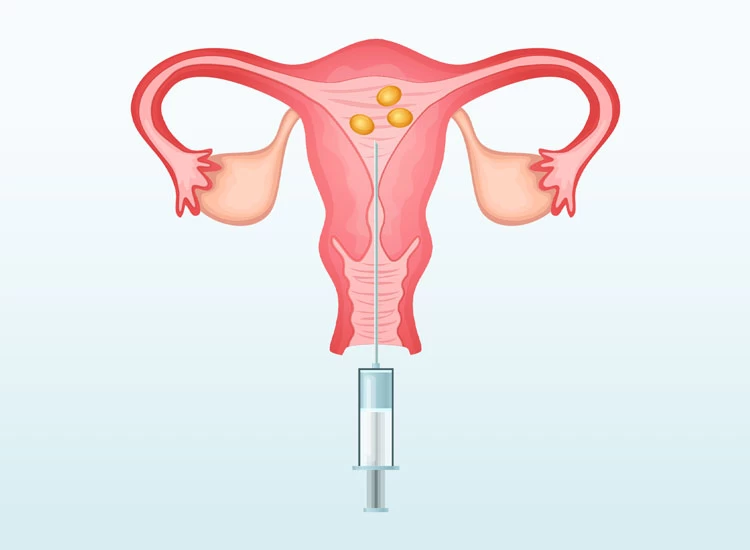
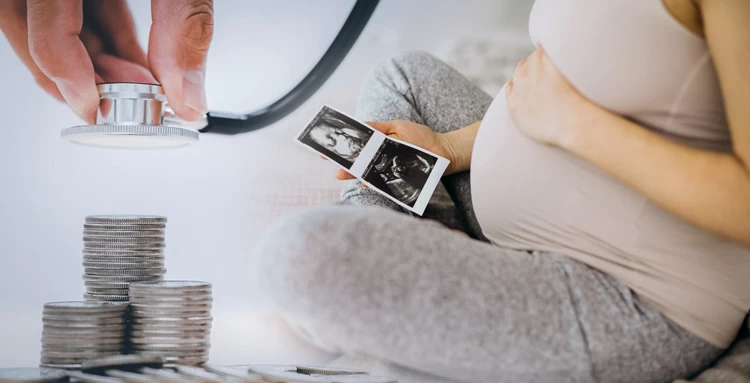


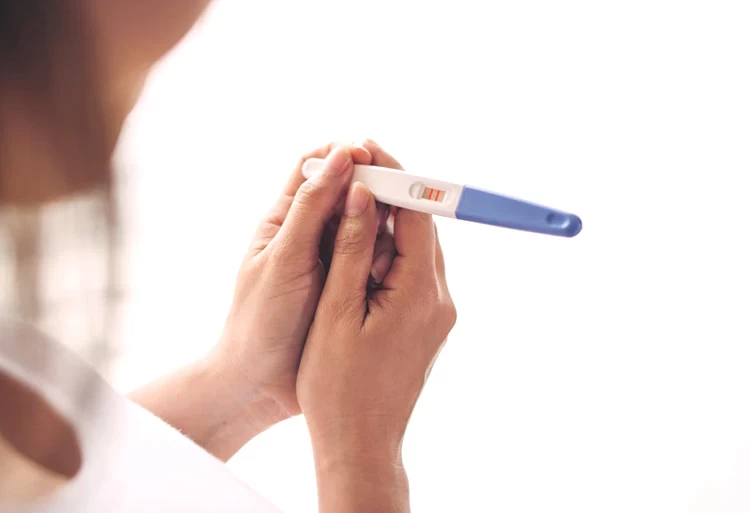
No reviews
Your comment